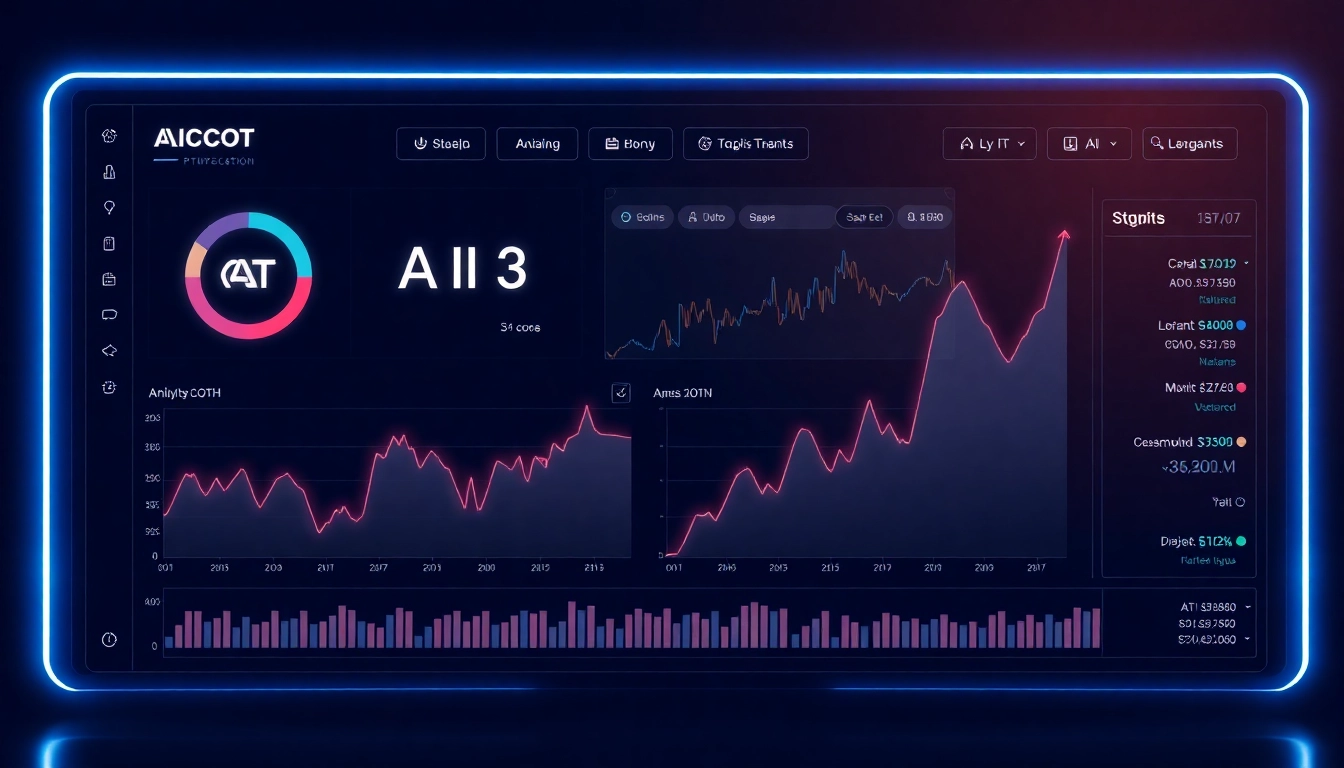Understanding the UK Trading Platform Landscape in 2025
Market Overview and Growth Trends
The UK online trading market has experienced unprecedented growth over the past few years, driven by increasing investor interest, technological advancements, and regulatory support. In 2025, the sector continues to thrive, with a diverse array of platforms catering to both novice and experienced traders. The rise of mobile trading apps, integration of artificial intelligence tools, and expansion of accessible asset classes such as cryptocurrencies have transformed the landscape. According to recent industry reports, the UK’s online trading volume has increased by over 25% annually, reaching new heights in terms of market penetration and investor diversity.
A key trend in 2025 is the emphasis on user-centric design and platform transparency. Trade execution speeds, low fees, and comprehensive research tools have become critical differentiators among leading platforms. Moreover, the UK’s regulatory framework, primarily overseen by the FCA, continues to ensure a safe trading environment that fosters investor confidence. For those seeking insights on Best Online Trading Platforms UK, understanding these trends helps identify which platforms are positioned for sustained growth and innovation.
Key Features of Top UK Trading Platforms
The best trading platforms in the UK share several core features that cater to a wide range of investor needs:
- Regulatory Compliance: All top platforms operate under FCA regulation, ensuring compliance with strict standards for investor protection and transparency.
- User Experience (UX): Intuitive interfaces with customizable dashboards, practice/demo accounts, and seamless navigation facilitate better trading decisions.
- Asset Variety: Leading platforms offer extensive asset classes, including stocks, ETFs, forex, options, futures, cryptocurrencies, and bonds, allowing diversified trading strategies.
- Fee Transparency: Clear fee structures with minimal hidden costs foster trust, especially concerning spreads, commissions, and overnight fees.
- Advanced Tools & Analytics: Integration of charting software, economic calendars, real-time news feeds, and risk management tools help traders make informed decisions.
- Accessibility: Mobile trading apps and web platforms ensure traders can operate from anywhere, supporting both seasoned and beginner investors.
For instance, platforms like Interactive Brokers and eToro exemplify these features, offering robust tools alongside regulatory clarity. Such features not only enhance trading performance but also bolster investor confidence in a rapidly evolving market.
Regulatory Environment and Investor Protections
The UK’s regulatory landscape plays a pivotal role in shaping the trustworthiness of online trading platforms. The Financial Conduct Authority (FCA) maintains rigorous standards to safeguard investors, requiring platforms to adhere to strict capital requirements, conduct risk assessments, and ensure clear disclosure of risks. Additionally, the Financial Services Compensation Scheme (FSCS) provides protection up to £85,000 per individual in the unlikely event of broker insolvency.
In 2025, these safeguards are complemented by transparency initiatives—such as clear fee disclosures and standardized reporting—aimed at reducing misinformation and fraudulent activities. For traders, choosing a platform with a solid regulatory background translates into peace of mind, knowing their investments are protected and regulated under comprehensive UK laws.
As a practical tip, always verify a platform’s FCA registration and review their customer complaint records to ensure compliance and reliability.
How to Choose the Right Online Trading Platform in the UK
Assessing User Experience and Interface
An intuitive, user-friendly interface is essential for effective trading. Beginners should prioritize platforms with clear navigation, educational resources, and demo accounts to practice without risking real capital. Advanced traders, meanwhile, benefit from customizable dashboards and advanced charting tools that facilitate rapid decision-making. Testing several platforms through demo accounts can reveal which interface aligns best with your trading style.
Cost Structures and Fee Transparency
Cost considerations are a significant factor. Look beyond base commissions to include spreads, overnight fees, withdrawal charges, and other hidden costs. Platforms like eToro excel in offering zero-commission stock trading, making them attractive for cost-conscious investors. Transparent fee disclosures not only prevent unpleasant surprises but also enable accurate performance assessment.
Asset Offerings and Trading Opportunities
Diverse asset offerings allow traders to implement varied strategies. Evaluate whether your chosen platform provides access to markets of interest, such as US stocks, cryptocurrencies, or forex. For example, Interactive Brokers is renowned for its global reach and broad asset spectrum, while Trading212 appeals to those seeking simplicity and access to UK and US shares.
Comparative Analysis of Leading UK Trading Platforms
Platforms with Best Overall Performance
Based on a combination of regulatory standing, user satisfaction, and technology, platforms like Interactive Brokers and IG Group stand out. Interactive Brokers offers institutional-grade trading tools, low fees, and global access, making it suitable for serious investors. IG Group balances comprehensive research tools with a broad asset portfolio and strong regulation, making it a top choice for UK traders.
Platforms Ideal for Beginners and New Investors
For novices, Trading212 and eToro are frequently recommended due to their intuitive interfaces, educational resources, and social trading features. Trading212, for instance, allows users to learn with virtual funds through demo accounts, while eToro’s social trading enables copying experienced investors—an excellent way to learn and grow confidence.
Specialized Platforms for Advanced Traders
Experienced traders often require advanced analytics, fast execution, and algorithmic trading capabilities. Platforms such as Interactive Brokers and Saxo Bank fit these needs, offering in-depth research tools, API integrations, and low latency connections, crucial for high-frequency and day traders.
Practical Steps to Get Started with the Best Online Trading Platforms UK
Opening and Funding Your Trading Account
The initial step involves selecting a reputable platform, then completing the registration process—usually requiring proof of identity and address to comply with AML and KYC regulations. Funding options include bank transfers, debit/credit cards, and e-wallets. Comparing deposit and withdrawal fees across platforms ensures capital isn’t eroded unintentionally.
Learning Resources and Demo Accounts
Most top platforms offer demo environments where new traders can practice strategies without risking real money. Additionally, many provide webinars, tutorials, and articles to enhance understanding of trading concepts and platform features. Utilizing these resources accelerates skill development.
Developing Your Trading Strategy
Successful trading hinges on a well-defined strategy—whether focusing on swing trading, day trading, or long-term investing. Use analytical tools and news feeds provided by your platform to identify opportunities, manage risk effectively with stop-loss orders, and maintain discipline by sticking to your trading plan.
Measuring Success and Optimizing Your Trading Experience
Tracking Performance and Setting Goals
Regularly evaluating your trading results using platform analytics or third-party tools helps identify strengths and areas for improvement. Establishing clear, measurable goals—such as monthly ROI targets—keeps you focused and adaptable.
Utilizing Platform Tools and Analytical Features
Advanced traders leverage tools like risk calculators, sentiment analysis, and algorithmic alerts. Automating parts of your strategy or utilizing trading signals can enhance consistency and reduce emotional decision-making.
Staying Updated with Market Trends and News
Continuous education through financial news, social media channels, and expert insights supports timely decision-making. Platforms that integrate real-time news and economic calendars enable traders to react swiftly to market-moving events.



